Lala Tuku (Festival Chairperson) and Ayanda Sithebe (Festival Director) reflect on the past, appreciate the present and dream of an incredible future as the annual film festival, ARIFF, turns five.
“ARIFF is a premier social impact film festival that is all about giving rise to the African voice to the previously marginalised.”
This sentiment punctuated our conversation with the co-founders of the Africa Rising International Film Festival, Ayanda Sithebe and Lala Tuku. Founded back in 2018, the annual film convention has served as more than a place to watch the latest cinematic release – but instead has turned into a platform which amplifies, accepts and appreciates every voice in the African film circuit. ARIFF centers on women, the youth, people living with disabilities and the queer members of our society, giving a voice to those previously left in the shadows.
This year the festival returns for its 5th edition under the theme: Here We Are. The theme speaks to celebrating the legacy of ARIFF, paying tribute to African Cinema. This 5-year landmark is an opportunity to reflect as well as forecast. This year, the festival seeks to pay homage to the past, observe the present and shape the future of African cinema.
ARIFF’s co-founders, Lala Tuku (Festival chairperson) and Ayanda Sithebe (Festival director) need little introduction having established themselves in the world of film and television.

Lala Tuku is a multi-hyphenated, revered creative industry practitioner, with over 3 decades of extensive experience within the South African Film and Television industry. Lala has seamlessly moved from in front of the camera as an actress, presenter, to behind the scenes as an director and executive producer to being newly appointed the Head of Local Production at the National broadcaster (SABC).
Lala currently serves on the National Film and Video Foundation board (NFVF), Under her producer belt amongst others, is BET Africa’s first original daily drama ISONO. As an outspoken advocate for the advancement of black women in the creative industry Tuku founded “A break with Lala” a sisterhood and mentorship initiative aimed at assisting black young female practitioners navigate the creative industry, a true philanthropist at heart.
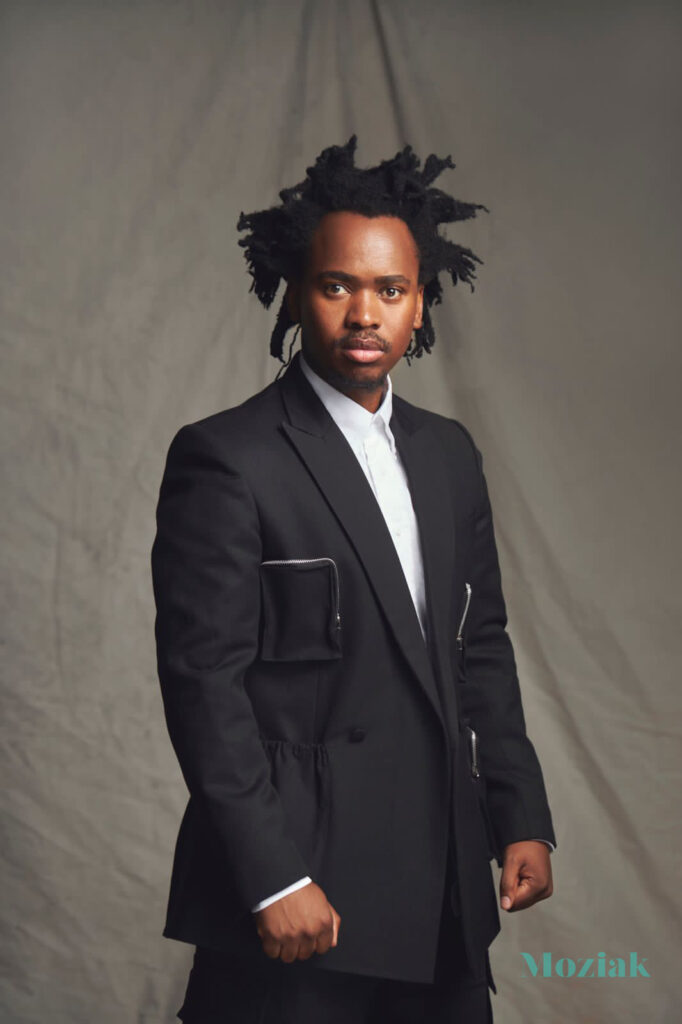
With more than 15years of 360 industry experience, Ayanda Sithebe is the Founder and CEO of Actor Spaces a platform that celebrates, highlights and archives the work of Actors, with a strong focus on development.
Ayanda has also extended his brand as a renowned multi-award-winning Casting Director on leading tier 1 shows locally and internationally: playing lead as South Africa’s Casting Director for Shaka (CBS/Showtime), Isono(BET Africa), Estate (SABC), Hlomu: The Wife (Showmax), MTVbase Shuga DownSouth Season 3 just to name a few. Ayanda has been credited for the approach he takes in his castings, making the Actor feel seen and valued, all to uplift African storytellers through film and cinema.
His impact and contribution has earned him a SAFTA award, Mail and Guardian 200 Young South African Achiever, and two Royalty Soapie Award Nominations.
We got the opportunity to engage with Lala and Ayanda ahead of their 2022 festival run, now in its iconic 5th installment. The festival remains true to its mandate as an inclusive film festival that primarily lifts African filmmakers whilst creating a platform setting us on global conversations and recognition.
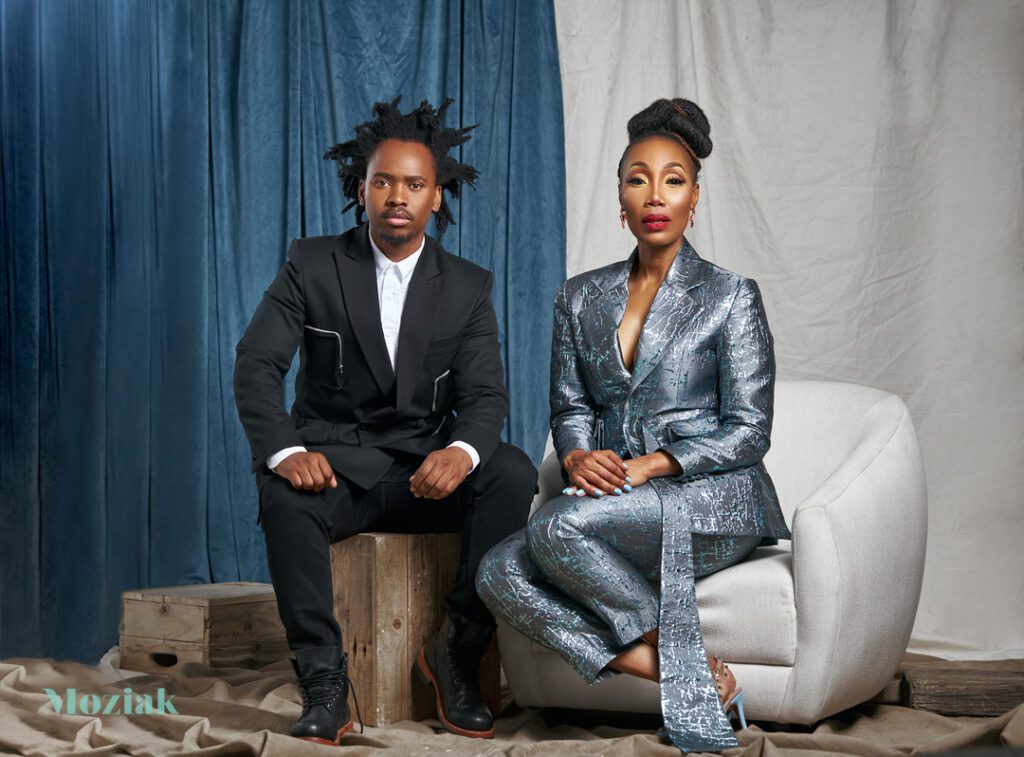
We’re just weeks away from the 5th ever Africa Rising International Film Festival. How would you describe your emotions?
Lala: It’s such an incredible honour to be part of and at the helm of something so meaningful and that drives change. Right in the beginning we set ourselves bold objectives that propel the festival forward to seeing those play out right in front of our eyes will always remain deeply moving and rewarding for me. I’m excited for this year and very proud of the team.
It’s great to see the world back to something close to “normal”. Festivals are back, events are back and of course ARIFF is back too. How does it feel to be able to put on this festival and host a full crowd again?
Ayanda: It feels great, to be able to contribute in a more visible way, over the years and through covid we’ve had to adapt and learn the power of impact. We are always excited to be able to bring cinema to our people.
More than anything we feel proud to pilot an organization like ARIFF, that we were able to survive 2020 and the pandemic. Surely there’s a need and space for what the festival serves to do, creating real change and driving conversations.
This year is not just ARIFF – but ARIFF 5 as you host the festival for a landmark occasion. What does the number 5 symbolise to you?
Lala: It’s a moment to recollect and take stock of how much progress we have made as a brand and as a collective, and that’s something I do not take for granted. We’ve seen a lot of growth, and each year has its own stories and memories and triumphs. Year 5 for me is a definite “high 5” moment. A true celebration that informed our theme for ARIFF 5.
Last year’s ARIFF, despite what we’ve discussed about the impacts of the pandemic, was another huge success for the brand. What were some of the learnings and highlights that have helped you refine this year’s experience?
Ayanda: Our biggest lesson last year was adapting to the “new normal” world. However, Covid restrictions were slightly loosened, but there were still 50% limits. The pandemic forced us to explore the hybrid route, we were met with lots of technical requirements and setups and the challenge of delivering the ARIFF experience to everyone and we conquered.
But it left us this year with questions about how we can fully give our audience a memorable experience this time around. We want people to leave the event with the right takeaways, rather than feeling like they just attended another event.
Anybody who comes to the festival needs to be impacted one way or another and last year’s edition taught us how to do that a bit better.
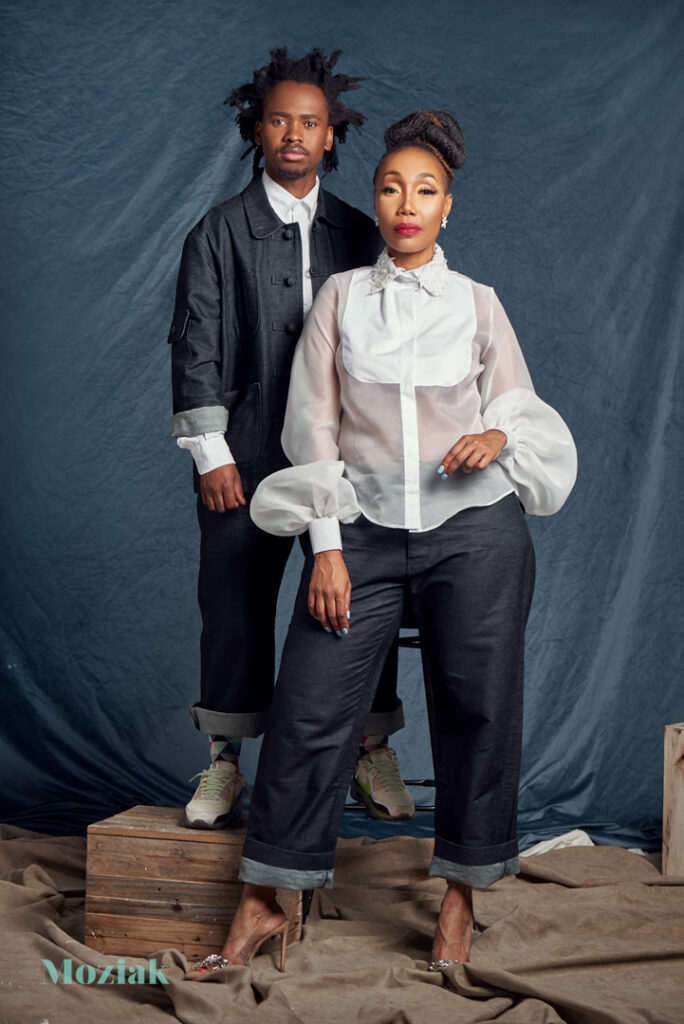
Which brings us to the theme for ARIFF 5: “Here We Are”. What does this slogan represent to you and everyone who will get to attend?
Lala: “Here We Are” really speaks to recognition, validation and taking up space. We are strongly rooted in who we are. We matter. Our stories matter. We are important. We validate each other, I see you, you see me, we acknowledge the work we put in, we honour each other. We show up as our most authentic selves. We Are Here and Here We Are.
ARIFF’s 2022 program promises to bring an element of retrospection to this year’s film roster as we look at both the past and the future of African film. What would you say film lovers can expect from this year’s edition?
Ayanda: Our festival is all about giving a rise to the African voice and we take our role when it comes to making a social impact very seriously. When we first started ARIFF, we wanted all filmmakers and filmgoers to feel welcomed, rather than intimidated and that’s a vision which we’ve maintained over the years.
Lala put it extremely well when she said that we don’t leave any storyteller behind and we don’t leave any story untold in our mission to host this festival. So with every edition, including this one, we start by asking ourselves how the festival will speak to everyone.
The film program will still be a pan-African film exhibition but this year will be very exciting because as we turn 5 we had to reflect on a few things. The direction of African cinema and also the road we’ve travelled thus far.
This year we want to take festival-goers on a trip down memory lane as we look to revisit iconic African and South African films. Films that we produced post-independence/democracy but are at least seven years or older!
We have come to know ARIFF as a very multi-faceted film festival. It’s about more than going out and watching films, there’s plenty of dialogue, there are workshops and mentoring opportunities too. What can we expect outside of the film program this year?
Ayanda: We’re bringing plenty of talks, which I’m really excited about. We will have thought leaders and creators discussing the past and present as well as the future of African film. We’re also going to have a series of masterclasses as part of these talks where we’ll bring an element of tutorship to our discussions.
We still have our flagship programs including The Film Child, where we bring young children from different communities to watch and experience films in cinema for the first time. It’s so amazing watching children’s eyes light up after experiencing cinema for the very first time.
Another flagship program is our Digital Hub in response to the demands of the fourth industrial revolution, this program expands beyond the world of cinema and television and speaks to the new generation of storytellers and content creators. You don’t need me to tell you about the impact of social platforms like Tik Tok, web series on YouTube, VR technology etc! Here we curate a diverse program of content focused on digital storytelling, gaming and virtual reality
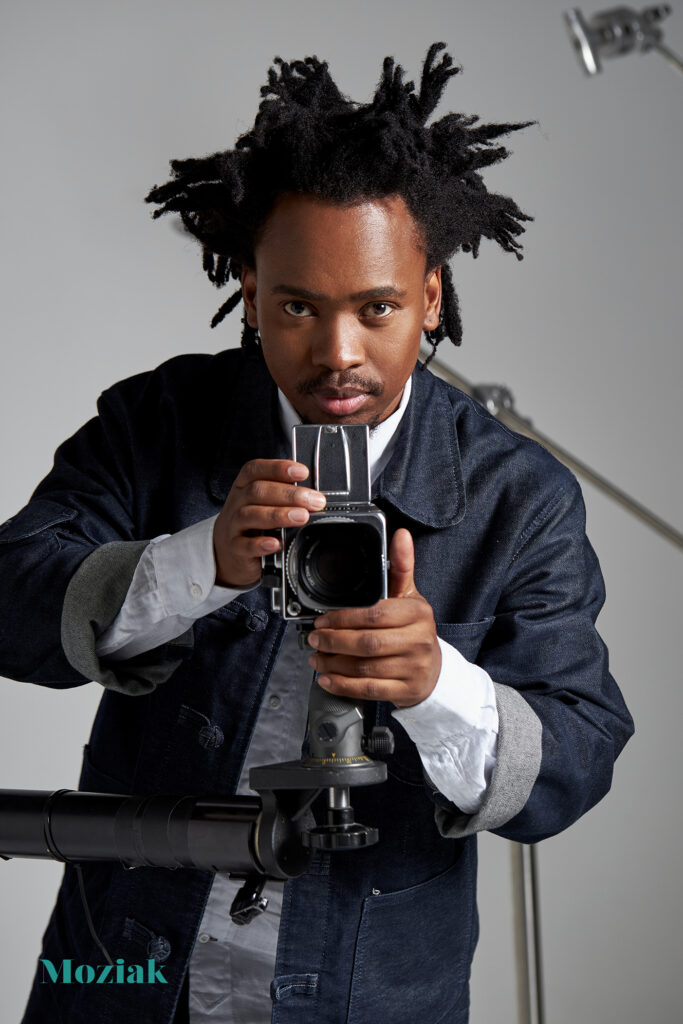
We particularly love The Film Child program. How do you find the young people who will be attending your programs?
Lala: This is a very special part of the festival, where Cinema is brought to the little ones. They come from a variety of homes, schools and orphanages across a number of communities nearby. Last year we had kids from the Orange Farm Orphanage Home who we hosted and they had a life-changing experience.
What’s exciting about this year’s edition is that we are not only inviting them to watch films, but to create their own stories through a facilitated programme. The completed 4 short films will be screened during the festival. So definitely look out for The Film Child this year.
So ARIFF isn’t just about showcasing film but teaching valuable lessons too. Why is it so important that we raise a film literate generation?
Ayanda: It’s a powerful mission and an important question. In fact, that’s why we’re screening films that are older than 7 years this year.
We need our population to understand the importance of capturing and documenting our stories through film and that is one medium which helps us do that. As Africans, there’s so much academic thought and research that goes into correctly documenting our stories and you do this as a filmmaker to educate your audience.
But sometimes those important messages can be missed. This doesn’t mean we shouldn’t be entertained by films, but when we sharpen the eye of the audience there’s so much more that they can get out of a film than only entertainment or just another form of escapism.
It sounds like a topic you’re extremely passionate about. Although we know ARIFF is a year-long project, do you want to see its impact grow even further than the festival?
Ayanda: All across the world we see what happens when you empower and back your artists and it’s something we need to bring to Africa – ARIFF is just the beginning, or rather the festival as you know it is just the beginning of a bigger vision.
We see the potential for a lot of satellite programs that could support the festival throughout the year, and although it’s not quite in the works yet, one of our ambitions is to even have an entire ARIFF Institute. This would be a learning institution where we can train and educate people across the country on film, the industry and all that goes into it. It’s a plan we want to get to but for sure, the vision is to increase the impact.
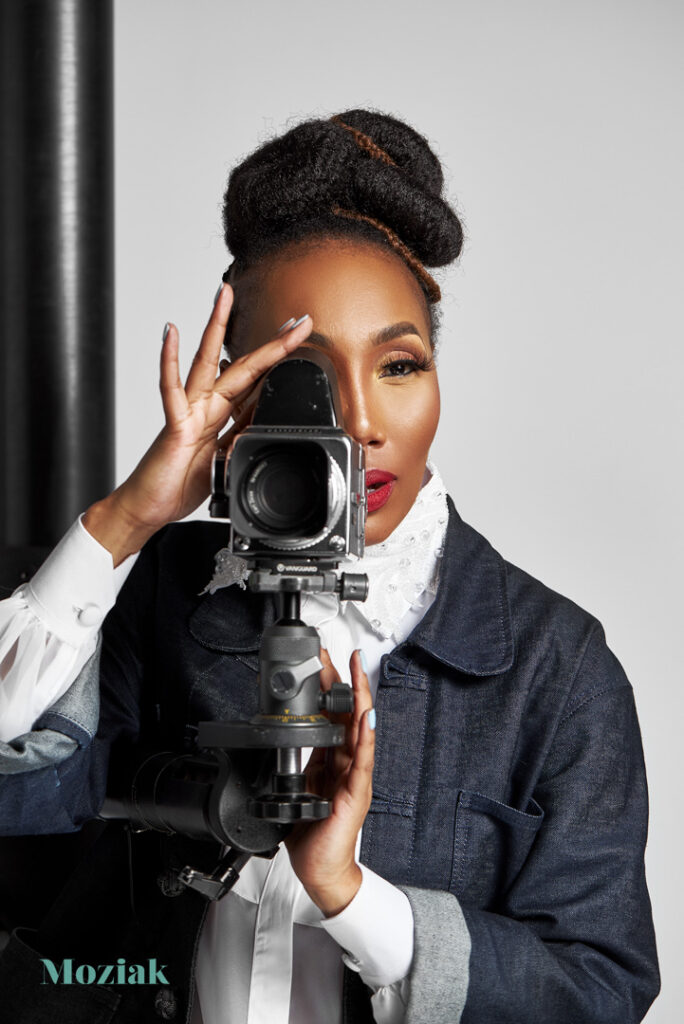
We see the role ARIFF plays in communities and in the industry, but what has it done in your life to change you as a person and professional?
Lala: It has given expression to my advocacy work. I am able to fulfill the things I am most passionate about. It has allowed me to put into action what I know needs urgent attention within the industry. This brand ARIFF has become very integral and a truly huge part of who I am. I remember growing up, the creative industry has always been part and parcel of who I am – whether I am on stage in the theatre (literally, every school holiday!) or being in a dance group of some kind – it’s always been in my DNA.
However, turning all of that into a career meant being confronted with the realities of the industry and what it really meant to be young, black and female in this space.
But now, as chairperson of ARIFF, I get to be part of change as we shift the needle and rewrite our own history. Giving hope to the coming generation who are getting access to types of dreams they never knew existed. So, it’s changed me tremendously!
We are so ready to be “Here!” What can you tell us about tickets/access and everything we need to know about how to get involved in this year’s festival?
Ayanda: In line with being a festival for the people, our tickets don’t cost a cent just like any other year. You do however need to book through our ticketing system.
The festival activities are positioned in central spots for easy access. Some of our screenings are at The Zone SterKinekor, while others are Atlas Studios, The Bioscope and even our studios as ARIFF at 44 Stanley, this means we are between Milpark and Rosebank. Closer to the festival our program can be accessed on our website and social media pages.
All the action begins from Thursday 24th to Sunday the 27th of November.



